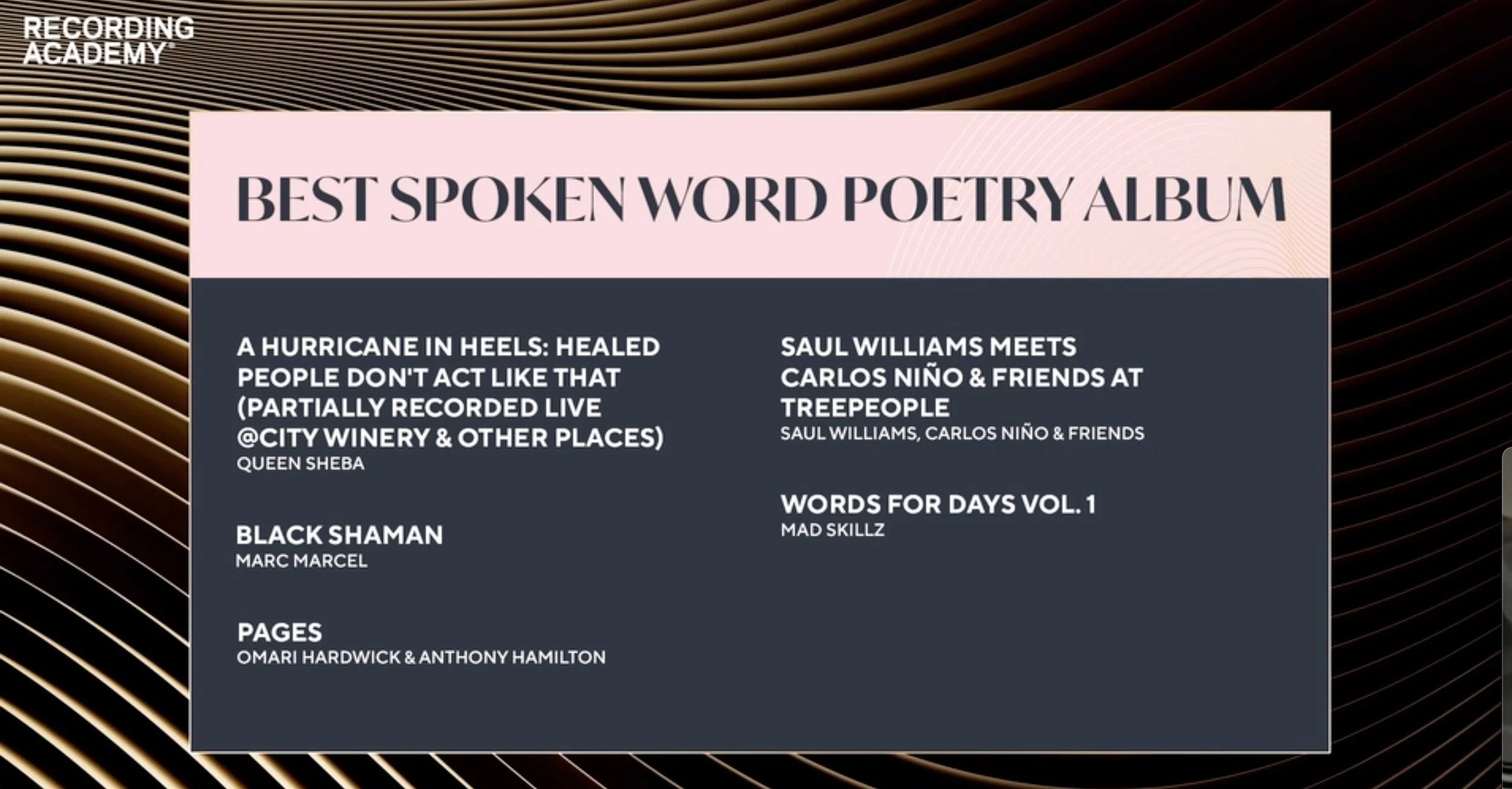WHAT DOES IT MEAN TO BE A 3X GRAMMY-NOMINATED SPOKEN WORD-POET?
And why this time hits different…
There are moments in an artist’s life that feel both familiar and foreign at the same time.
Like déjà vu in a different outfit.
For me, that moment came when I heard my name—again—among the nominees for the GRAMMY® Award for Best Spoken Word Poetry Album.
Third year in a row.
Three consecutive nods in a category that didn’t even exist a few years ago.
You’d think the third time would come with a sense of arrival.
That I’d finally exhale, close my journal, and say, “I made it.”
But instead, it feels like standing at the mouth of something much bigger—something that requires both reverence and responsibility.
Because here’s the truth: being a 3x GRAMMY-Nominated Poet isn’t just about me.
It’s about the record-keepers.
The archivists of feeling.
The storytellers who hold the weight of our culture in our throats and turn it into sound.
The Spoken Word-Poetry category is still new. It’s young, still stretching, still learning its name.
We—the poets—are defining what it looks like, what it feels like, and how it sounds to be recognized not as an accessory to music, but as music itself.
And so I ask myself daily:
What is my responsibility as a poet now that I’m here again?
It’s not to be humble—humility was the entry fee.
It’s not to be perfect—perfection is the enemy of truth.
It’s to be accurate.
To be an accurate reflection of what it means to survive, to dream, to document the human condition through a Black woman’s lens, and to remind the world that poetry didn’t just arrive at the GRAMMYs—it’s been the foundation of every genre celebrated on that stage.
Poetry was the drum before the beat.
The sermon before the song.
The freestyle before Hip-Hop had a name.
And now, it’s our turn at the microphone.
I think about all the poets who never lived to see this moment.
The ones who wrote brilliance into brown paper bags and spiral notebooks.
The ones who were told poetry wasn’t “marketable” or “mainstream.”
The ones who were sampled but not cited.
I think about how their courage made my nominations possible.
To be nominated three years in a row is to become a witness—
not just to my own evolution, but to the genre’s.
Each year, more poets enter the conversation.
Each year, the soundscape widens.
Each year, we inch closer to cultural equity.
That’s what this means.
That’s why it matters.
This time around, the nomination isn’t just a trophy chase.
It’s a torch pass.
It’s proof that poetry—our poetry—belongs in rooms it once couldn’t afford to enter.
That spoken word isn’t a side dish to music; it’s the main course when seasoned right.
That a poet from Atlanta can stand shoulder to shoulder with the world and still sound like home.
I used to think the goal was to win.
Now I know the goal is to open the door wide enough that others can walk in without having to explain why they’re here.
Three-time nominee.
One mission:
To keep the mic honest.
To make sure the work stays bigger than the ego.
To remind every poet watching that the work is worth doing, even when the world isn’t watching.
Because if there’s one thing I’ve learned—
it’s that being seen is a blessing.
But being remembered?
That’s legacy.


